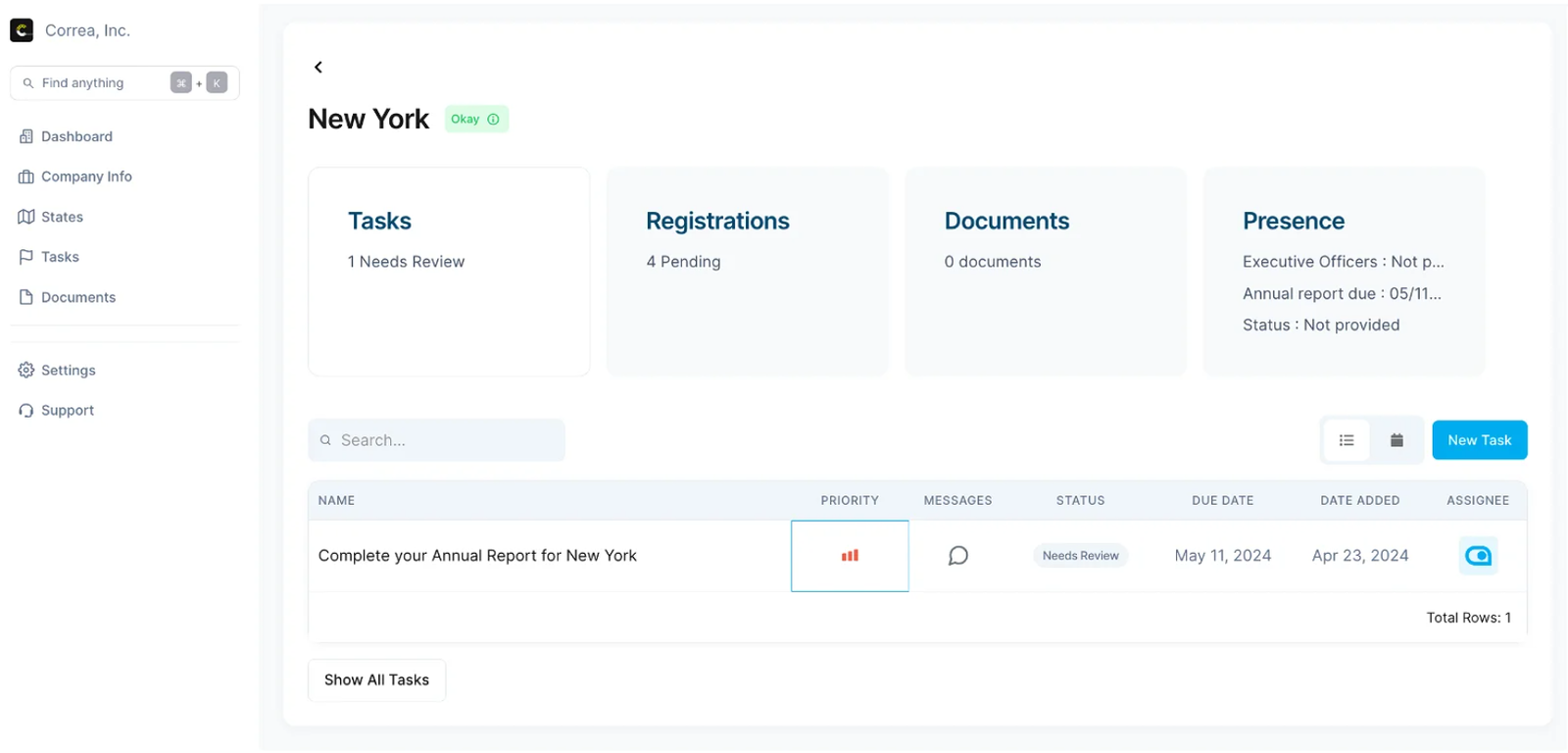Summary
The fact that you may need to register with state agencies like New Hampshire Secretary of State is a sneaky misconception that many folks miss.
However, with the rise of remote work, states have begun cracking down and levying penalties for those who (unknowingly) fail to register.
If you're considering operating in New Hampshire, use this guide to:
- Explore the that triggers the need to register with the New Hampshire Secretary of State, including criteria such as physical presence, economic activity, and advertising efforts.
- Determine where and how to register with the New Hampshire Secretary of State.
- Understand additional requirements such as Registered Agents, registration with other state departments, and ongoing annual reports.
What criteria would trigger the requirement to register with the New Hampshire Secretary of State?
Factors New Hampshire Considers "Doing Business"
Physical Presence: The following would generally indicate that you're doing business in New Hampshire:
- Having an office, store, warehouse, or other physical place of business.
- Having employees or representatives physically located in New Hampshire.
- Owning or leasing property (real estate or tangible property) in the state.
Economic Activity: Engaging in these activities in New Hampshire usually suggests you're doing business:
- Selling goods or services to New Hampshire customers (includes remote or online sales).
- Providing services within New Hampshire.
- Regularly soliciting business or engaging in transactions within the state, even without a physical presence.
Business Structure: Certain business types, like foreign corporations (those incorporated outside New Hampshire) and Massachusetts Business Trusts, are generally required to register to do business in the state.
Examples of Scenarios Likely Constituting "Doing Business" in New Hampshire
- Operating a physical retail store in New Hampshire.
- Having a New Hampshire-based office for your business.
- Providing consulting or repair services to New Hampshire clients.
- Regularly selling products through an online store to New Hampshire residents.
- Maintaining a warehouse or distribution center in New Hampshire.
Important Notes
Nexus: Like many states, New Hampshire's definition of "doing business" includes the concept of nexus. This means that even without a physical presence, a sufficient level of economic activity in the state can create obligations to register and potentially pay taxes.
No Income Tax: New Hampshire is unique in that it doesn't have a general corporate income tax or a personal income tax. However, it does have a Business Profits Tax and a Business Enterprise Tax.
Where do I register, and what else is required?
New Hampshire Secretary of State
- A Certificate of Good Standing is not required.
In addition:
A Registered Agent is required to serve as the company's physical in-state presence to receive important legal documents. Do not fall victim to the common misconception that you can leverage an in-state employee as your Registered Agent. It's far too risky.
You'll want to review the other registrations required in New Hampshire. Here's a New Hampshire specific guide we put together.
What is the registration fee?
The fee charged by New Hampshire is $100 (if registration is needed).
How long does New Hampshire usually take to process?
New Hampshire usually takes approximately 1 - 2 weeks to process registrations.
What is required ongoing?
Each state has a complex schedule of required annual reports, which can vary by entity type. Let's take a look at New Hampshire's:
C-Corporation
- Filing Date: April 1
- Filing Frequency: Annual
LLC
- Filing Date: April 1
- Filing Frequency: Annual
Non-Profit
- Filing Date: December 31
- Filing Frequency: Annual
There is an Easier Way
 Automate registration and annual report tracking in AbstractOps.
Automate registration and annual report tracking in AbstractOps.This guide should definitely help reduce some of the confusion for New Hampshire. However, if you have multiple states to worry about, you may look to:
Automate state registrations and annual reports
Centralize email, snail mail, state ID’s, and registered agents, and
Take control of action items, eliminating risks before they become penalties.
Start the AbstractOps product demo to see how easy this can be.
Note: For the avoidance of doubt, nothing provided here shall contemplate, constitute or include tax or legal advice. Always double check with state agency websites for the most up-to-date requirements.



